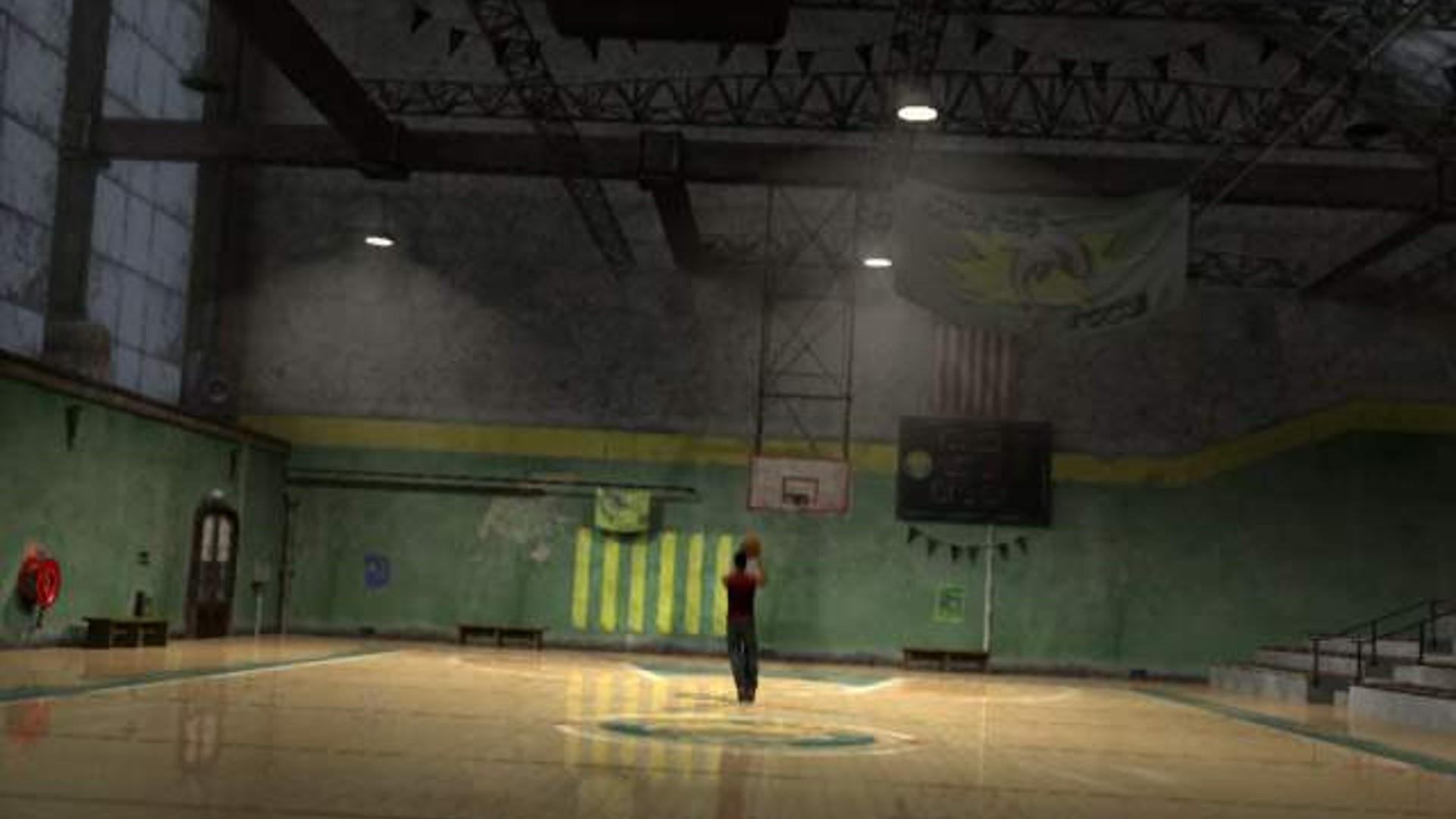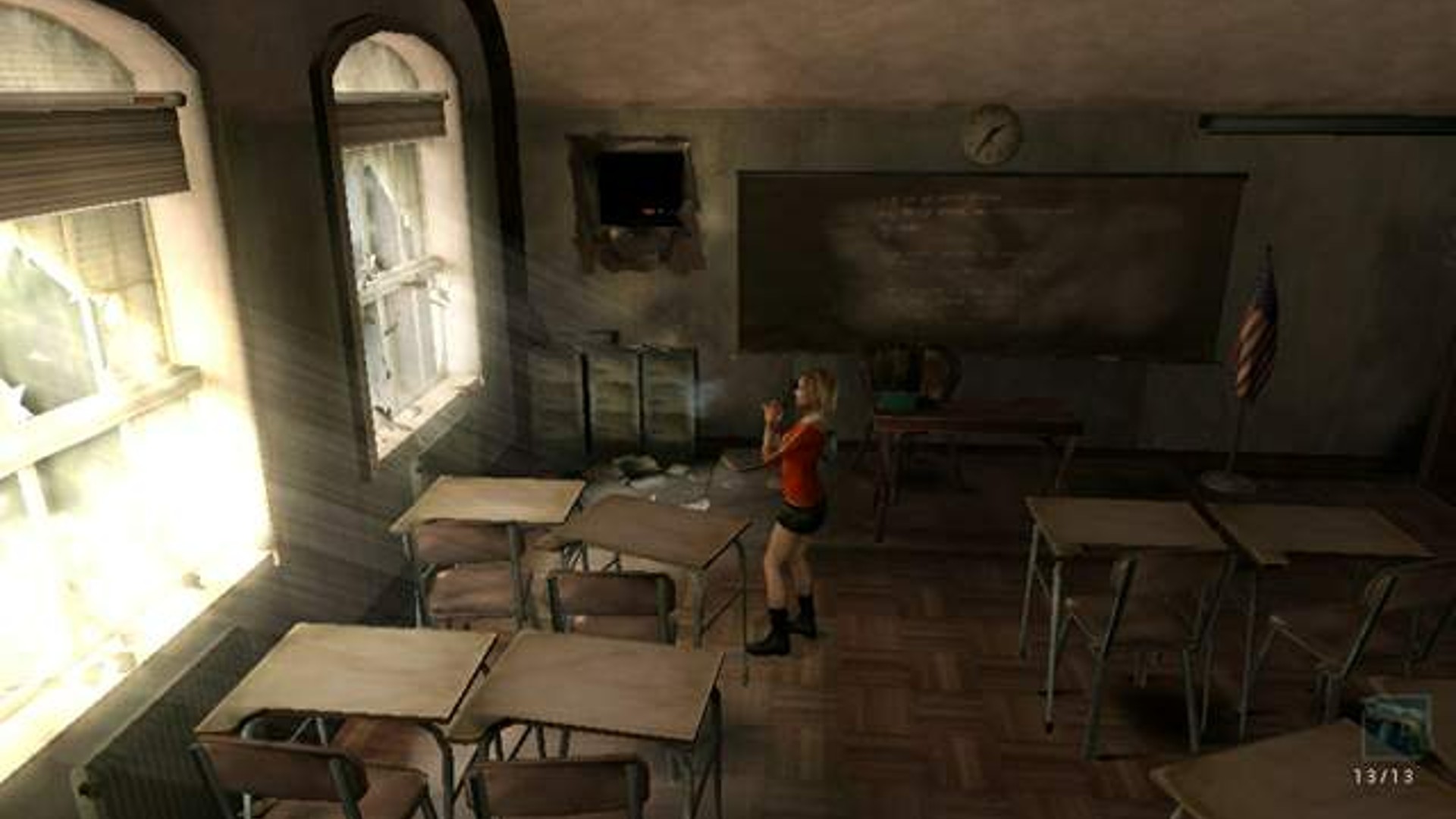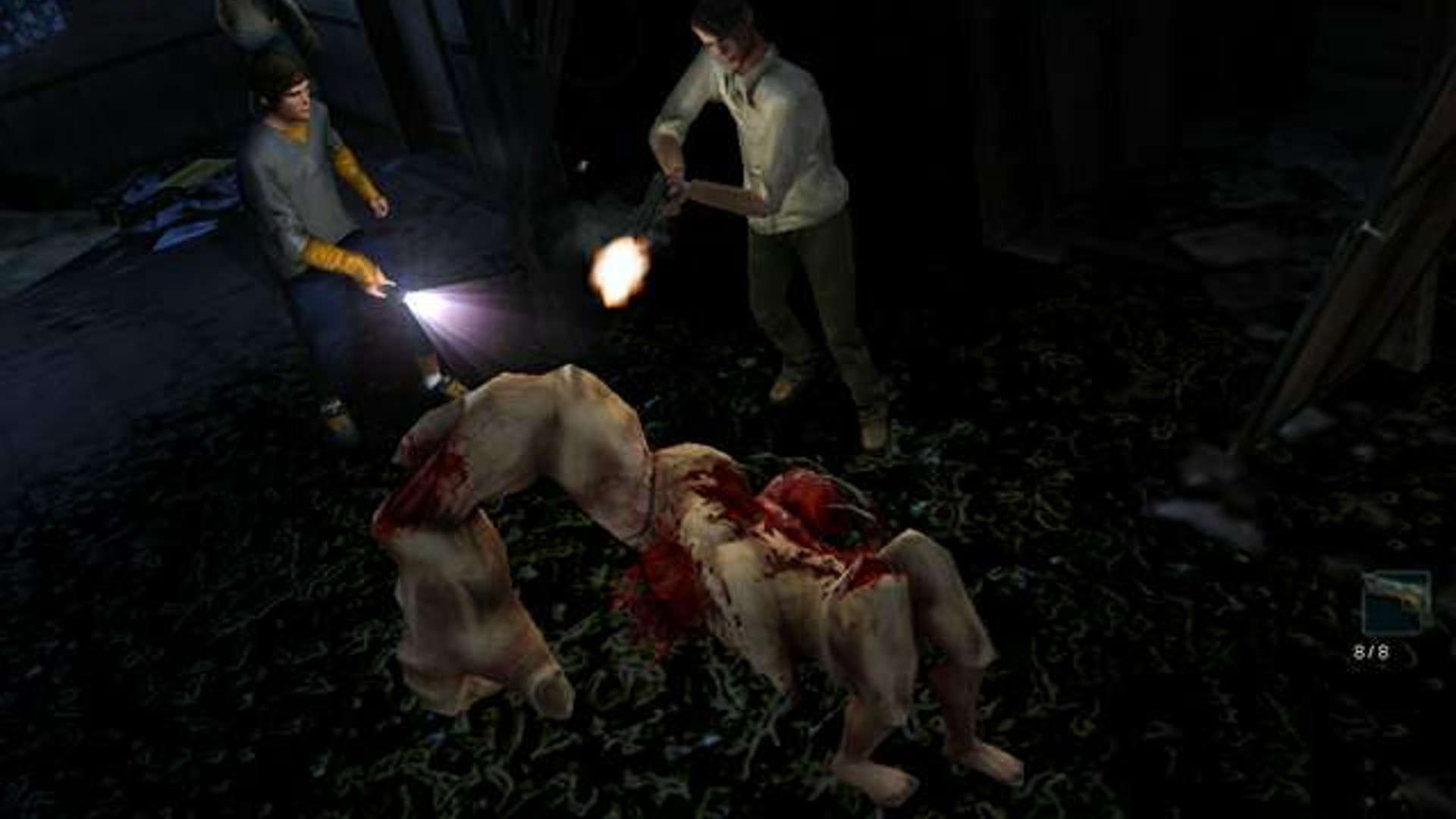
Oh, the trials and tribulations of being a teenager. There's the acne, the dating, and, of course, the ever- present danger of getting your head bitten off by a mutated plant monster... wait, what?
The Obscure series consisted of a pair of games created by French developer Hydravision Entertainment. Obscure was released in 2004 for PS2, Xbox, and PC, while the sequel, Obscure 2, arrived on PS2, PC, and Wii in 2007, then on PSP two years later. (That game was known as Obscure: The Aftermath when it arrived in North America in 2008.) In both, you take control of a group of students trying to survive an outbreak of deadly monsters at their school.
Obscure was Hydravision's first video game. Originally a publisher of pen-and-paper RPGs, it pivoted to the world of digital entertainment by prototyping an action platformer called Jinx, before landing on the idea of doing a survival horror game. "Most of the team loved horror movies," explains Pierre Leroux, Obscure's head of production, "and at that time survival horror games were not the most complex ones in terms of technical complexity and content scope. Meanwhile, box-office numbers for movies like Scream, I Know What You Did Last Summer, and The Faculty were skyrocketing. So it seemed like doing a teen slasher movie-style video game was a good idea."
Radical, dude


This feature first appeared in PLAY magazine - Subscribe here to save on the cover price, get exclusive covers, and have it delivered to your door or device every month.
Not surprisingly, Obscure takes liberal inspiration from the horror movies it emulates. The first game follows five students from Leafmore High, each one conforming to a horror archetype. There's Kenny the jock and his brainy sister Shannon, Ashley the cheerleader, Josh the geek, and Stan the stoner. Everything from the dialogue to the Sum 41 cover song is early noughties American cinema at its cheesiest, although it's all clearly deliberate. Having said that, intentionally bad dialogue is still bad dialogue.
If you've ever picked up a survival horror title, you'll be at home with how Obscure handles. Viewed from fixed camera angles, hunting for keys and solving puzzles forms the meat of the action, with some light inventory management to boot. Combat is a simple matter of auto-aiming and pressing a button to attack, although with a slight twist. The creatures plaguing Leafmore are invulnerable when in the dark, surrounding themselves in a creeping green aura that covers the walls like mould. The only ways to kill them are by smashing a window to let sunlight in or burning away their auras with a flashlight, Alan-Wake-style. It's creepy hearing a monster growling off-screen and watching the mould spreading closer.
"We understood that if we wanted to infuse fear, we needed to make it so the game can be completed even if there's only one survivor left at the end of it. "Slasher movies almost always depict a bunch of teens who die one after the other," says Leroux. "From the beginning we thought it would be cool to let players live this experience. There was also a sort of joke hidden in the mechanic. You used to have games with lives-systems, usually depicted as hearts in the corner of the screen. When designing Obscure, we liked the idea that a life is actually... a life."
Fade to darkness

Obscure sold well enough to merit a sequel. Set several years after the events of the first game, Obscure 2 follows a new group of unlucky sods, this time at Fallcreek University. Up on the chopping block are skater Corey, hockey fan Sven, sorority girl Amy, and sisters Mei and Jun, joined by returning characters Stan, Kenny, and Shannon. History repeats itself and a new batch of horrors starts turning the student body into students' bodies. Obscure 2 is much the same affair as its predecessor, although some elements were pared back. The biggest change was the removal of the permadeath feature, resulting in a much more fixed narrative.
"We found that the freedom players had when it came to creating duos was hampering our ability to tell a story," says Leroux. "We couldn't go into as much depth to explore the relationships between the characters. Also, we discovered that when a character died, many players would just load their previous save, limiting the benefit of this feature. By removing this freedom from Obscure 2, it let us put a lot more emotion into the game."
"The idea we used was the various problems that teenagers go through at the time of puberty, and the often complex relationship they have with their body, their image, and the image they show to others"
Obscure 2 also has a slightly greater emphasis on solving puzzles, often requiring you to use each character's unique ability to bypass an obstacle. This makes up somewhat for the lacklustre combat, which is even more basic than that of its predecessor as it downplays the mechanic of the monsters being vulnerable to light. What the encounters lack in complexity, however, they make up for in grotesquery. Body horror is a big theme in Obscure 2, the first game's more plantlike creatures being replaced with fleshy travesties of the human form.
"The idea we used was the various problems that teenagers go through at the time of puberty," explains art director Anthony Lejeune, "and the often complex relationship they have with their body, their image, and the image they show to others. Problems like acne, weight issues, psychological stress; we used the monsters to exaggerate the discomfort many teens often feel at this time."
The Obscure series failed to make the leap to the next generation of consoles. In 2013 Hydravision (now called Mighty Rocket Studio) released Final Exam, a 2D side-scrolling beat-'em-up for Windows, PlayStation Network, and Xbox Live Arcade, which served as a spin-off of sorts to the IP and was met with middling reviews. But nowadays both Obscure games largely live up to their names.
It's hard to call them forgotten masterpieces. Like the stereotypes they depict, both the action and story lack depth, and at times everything feels a bit run-of-the-mill. But for all that, both titles offer campy co-op horror that's great fun for anyone hankering for old-school survival horror or noughties silliness. If that sounds like you, consider playing Obscure your homework. Class dismissed.
This feature first appeared in PLAY magazine - Subscribe here to save on the cover price, get exclusive covers, and have it delivered to your door or device every month.







